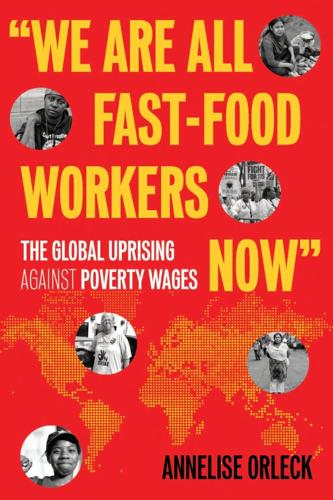
We Are All Fast-Food Workers Now: The Global Uprising Against Poverty Wages
by
Annelise Orleck
Published 27 Feb 2018
So franchise owners cut costs by squeezing workers.5 That’s how we got “McJobs,” says Bleu Rainer. A “McJob” is defined by Webster’s and The Oxford English Dictionary as low-paid work that offers little satisfaction and few prospects for advancement. Living-wage activists say we don’t need dictionary definitions. People around the world have worked in McJobs. Many remain stuck in McJobs for their entire working lives. An estimated one in eight Americans has worked for McDonald’s itself, and with little to show for it. “I was even promoted to manager,” says Rainer, “but I never made more than $9.15 an hour or had a schedule I could depend on. That’s a McJob.” Stretch Sanders also knows about McJobs.
…
“We really had nothing to lose.”6 Between 2012 and 2015, fast-food workers staged hundreds of one-day flash strikes, every few months in an ever-growing number of cities. And they took advantage of social media to maximize the impact of their actions. Images of shamefaced or weeping Ronald McDonalds went viral. So did the word “McJobs,” denoting dead-end work without benefits. They called on McDonald’s to “Supersize My Wages” and asked customers if they wanted “poverty fries.” These actions spread around the globe. In 2013, the National Guestworker Alliance asked Massimo Frattini and the IUF to support foreign student workers protesting horrific labor conditions at US fast-food restaurants.
…
Singing and cheering, they said their names aloud.5 Bleu Rainer and hundreds of fast-food workers marched wearing “Black Lives Matter: I Can’t Breathe” sweatshirts, tying the movement for higher wages to the struggle against police violence—highlighting the last words uttered by Staten Island street vendor Eric Garner as he was choked to death by police a year earlier. “It’s the same struggle,” says Rainer. “We are the same people. We all want the same thing. We deserve dignity and a decent life.” Some marchers carried Ronald McDonald puppets. They waved the corporate clown high. In some versions, he wept in shame. “McJobs Cost Us All,” said a popular shirt. The McDonald’s logo appeared on banners, covered by the words “Poverty Wages: Not Lovin’ It.” High school students mugged for the cameras. Wheelchair-bound veterans in neon-green OUR Walmart shirts wheeled with the marchers. Kids ran and laughed under signs that said: “Everybody Deserves Respect.”
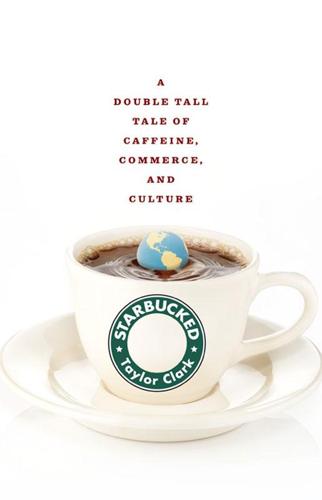
Starbucked: A Double Tall Tale of Caffeine, Commerce, and Culture
by
Taylor Clark
Published 5 Nov 2007
Realizing it had to protest or risk admitting its culpability in the trend, McDonald’s executives lashed out at Merriam-Webster, calling the inclusion a “slap in the face” to the nation’s service workers and claiming that “a more appropriate definition of a ‘McJob’ might be ‘teaches responsibility.’ ” (In the 1991 novel Generation X, Douglas Coupland quipped that a McJob is “frequently considered a satisfying career choice by those who have never held one.”) The editors, apparently convinced that the companies that created the McJobs were the ones doing the face slapping, kept the word. While the Starbucks baristas of times past needed considerable coffee expertise to perform their work, today’s company baristas must carry out a series of tasks that are as simple and deskilled as possible; the chain emphasizes speed and efficiency above all else.
…
McBaristas In 2003, the editors at Merriam-Webster triggered a minor controversy when they decided to add one simple word to the eleventh edition of their popular collegiate dictionary. That word was McJob. Defined as “a low-paying job that requires little skill and provides little opportunity for advancement,” the slang term had been in common use for more than a decade. But by the time the Merriam-Webster editors elected to legitimize the term, the proliferation of McJobs had become a national issue, bemoaned in bestsellers like Eric Schlosser’s Fast Food Nation; the general contention was that they were dehumanizing, tedious, dead-end posts that did no favors to the tens of millions of people who worked them.
…
While the Starbucks baristas of times past needed considerable coffee expertise to perform their work, today’s company baristas must carry out a series of tasks that are as simple and deskilled as possible; the chain emphasizes speed and efficiency above all else. “It is absolutely mindless labor,” one former Starbucks employee told me. “They’ve made it so that anyone can do it.” In other words, the position is now a textbook McJob. As if to underline this point, one source recently overheard a disgruntled barista at a Manhattan Starbucks complaining to a coworker, “You know, we’re just glorified McDonald’s employees.” Calling the post a McJob in no way implies that Starbucks baristas ought to resign themselves to feeling ill-treated and disposable or that they don’t deserve union protection. But one unavoidable fact makes unions at Starbucks all but impossible: as long as the work remains so unfulfilling, very few people will want to keep the job for long, no matter what Schultz says to keep them inspired.
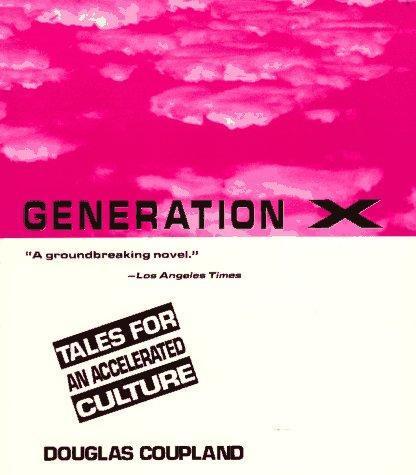
Generation X: Tales for an Accelerated Culture
by
Douglas Coupland
Published 15 Mar 1991
While the two of us were walking home, he ditched me right in the middle of a conversation we were having and darted across the road, where he then scraped a boulder across the front hood and windshield of a Cutlass Supreme. This is not the first time he has impulsively vandalized like this. The car was the color of butter and bore a bumper sticker saying WE'RE SPENDING OUR CHILDREN'S INHERITANCE, a message that I suppose irked Dag, who was bored and cranky after eight hours of working his Mcjob ("Low pay, low prestige, low benefits, low future"). I wish I understood this destructive tendency in Dag; otherwise he is such a considerate guy —to the point where once he wouldn't bathe for a week when a spider spun a web in his bathtub. "I don't know, Andy," he said as he slammed my screen door, doggies in tow, resembling the lapsed half of a Mormon pamphleting duo with a white shirt, askew tie, armpits hinged with sweat, 48-hour stubble, gray slacks ("not pants, slacks") and butting his head like a rutting elk almost immediately into the vegetable crisper of my Frigidaire, from which he pulled wilted romaine leaves off the dewy surface of a bottle of cheap vodka, "whether I feel more that I want to punish some aging crock for frittering away my world, or whether I'm just upset that the world has gotten too big—way beyond our capacity to tell stories about it, and so all we're stuck with are these blips and chunks and snippets on bumpers."
…
Dag was on a vandal's high, and the two of us were sitting on couches in my living room looking at the fire burning in the fireplace, when shortly Claire stormed in (no knock), her mink-black-bob-cut aflutter, and looking imposing in spite of her shortness, the effect carried off by chic garnered from working the Chanel counter at the local I. Magnin store. "Date from hell," she announced, causing Dag and I to exchange meaningful glances. She grabbed a glass of mystery drink in the kitchen MCJOB: A low -pay, low prestige, low -dignity, low benefit, no-future job in the service sector. Frequently considered a satisfying career choice by people who have never held one. POVERTY JET SET: A group of people given to chronic traveling at the expense of longterm job stability or a permanent residence.
…
"And it was this thought of loving that sustained me for a long while when, after quitting, I turned into a Basement Person and never went in to work in an office again." OVERBOARDING: Overcompensating for fears about the future by plunging headlong into a job or life-style seemingly unrelated to one's previous life interests; i.e., Amway sales, aerobics, the Republican party, a career in law, cults, McJobs. . . . EARTH TONES: A youthful subgroup interested in vegetarianism, tie-dyed outfits, mild recreational drugs, and good stereo equipment. Earnest, frequently lacking in humor. ETHNOMAGNETISM: The tendency of young people to live in emotionally demonstrative, more unrestrained ethnic neighborhoods: "You wouldn't understand it there, mother— they hug where I live now."
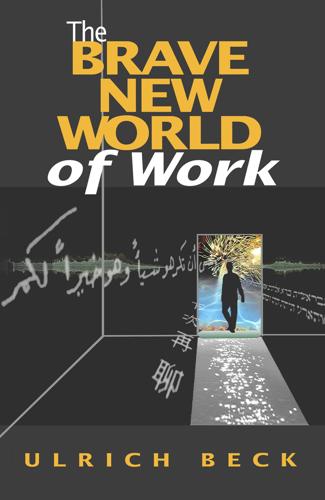
Brave New World of Work
by
Ulrich Beck
Published 15 Jan 2000
If it is successful, so much the better. But in case of doubt, a badly paid service job may also be accepted as a meaningful part of an individual's history of paid work. Such a history would then, in the nature of things, be full of breaks and contradictions; education would be interrupted and resumed, McJobs would often rank equally with starting up in a business of one's own, and everything would be woven together into a quite individual web of activities and employ-ment situations. One thing, however, is common to all these life-constructions: they lie outside the classical employee's biography, outside union agreements and statutory salary scales, outside collective bargaining and home mortgage contracts.32 And they are the basis for a precarious new culture of independence: ‘business men and women in their own affairs’.
…
A very ill person is a terrorist and a menace to jobs. A very very ill person abuses the social safety-net and the employer's goodwill. To continue paying wages during sickness leads to socialism. It has to stop! … Since we became younger, we have been more productive. Hardly a single one of us does not have the strength for five McJobs! Everyone delivers five newspapers at five in the morning, then takes five dogs for a walk, then fries burgers for half the day, then helps out for the other half in a health-food shop or a dry-cleaner's, and finally goes to work in a bar for the evening. The service society does indeed keep us all youthful.
…
Initially conceived as a temporary measure, this provides the legal basis for deregulation of the labour market (fixed-term contracts, job-sharing, labour available on call, casual labour), and hence for the individualization of paid work. The downsizing of both skilled and unskilled labour also takes place on the basis of the ‘50/50’ rule in the contemporary US economy, according to which people over 50 years of age and earning less than $50,000 a year are the first to be hit when jobs are divided or eliminated. McJobs What does it actually mean when someone earns so little that two or more jobs are needed to make a living? Ursula Münch has a long day ahead of her: two jobs (one for eight hours, one for two); four bus journeys, involving twelve transfers and a total of three hours' travel; plus shopping, cleaning and cooking for the children.
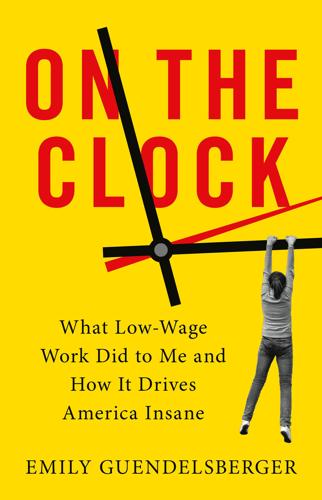
On the Clock: What Low-Wage Work Did to Me and How It Drives America Insane
by
Emily Guendelsberger
Published 15 Jul 2019
When I was hired last week, I was handed three plastic-wrapped dark gray T-shirts with a subtle white M over the heart and one black visor with a less subtle embroidered white M smack in the center of my forehead. I was instructed to keep these clean and to wear them with my own appropriate black pants and nonslip shoes. At a franchise in another city, I might have been charged for the shirts and visor. Here, I’m not. In many ways, a McJob in San Francisco is about as good a McJob as you can get anywhere because of the city’s worker-protection legislation. At $14 an hour, I’m paid almost twice as much as the average McDonald’s crew member—in November of 2014, voters overwhelmingly passed a ballot measure that would gradually raise San Francisco’s minimum wage to $15.
…
It’s an attempt to disincentivize common practices like (A) employing a large staff of part-timers or temps instead of a smaller staff of full-timers to avoid paying for benefits and (B) scheduling in a way that’s nice and flexible for the company but leaves workers unable to plan their lives more than a couple of days in advance. But despite having one of the best entry-level McJobs in the country, I sometimes feel that by going with the very first place that called about my application, I’ve picked a uniquely exhausting place to work. Like how I have to constantly hold my last three or four orders in my head because Candela keeps wiping the goddamn order queue. I assumed this was an accident the first time it happened, but then I saw her do it, clearly on purpose.
…
“So when I was scooping ice cream as a teenager, the manager actually put the schedule together on paper—was it like that for you?” I asked. Radhika, who’d had an after-school job at Jamba Juice, nodded. Suresh just shrugged. He’s been pushed to study, study, study his whole life. He ended up with a freakishly masochistic work ethic and tenure at Columbia, but he never experienced a traditional McJob. “So a couple decades ago, technology got good enough at analyzing the hour-by-hour sales data from stores for patterns, so it could make better and better forecasts about what times next week were going to be busy or slow,” I said. “At the same time, scheduling switched over from being written out on paper to being done by computers.

Shampoo Planet
by
Douglas Coupland
Published 28 Dec 2010
I smell the pilot light on the stove, hear the hum of the fridge and the rattle of the hallway fan. Now that I feel settled in, I can call Daisy up in Lancaster. The promised month has passed. Seems like a year. Over in the corner I see my camera, which I have yet to even take out of its case, having been steered away from fashion photography and bullied into a rent-paying McJob by Stephanie. The job? I man the hellish bubbling wing computer at WingWorld, a franchise that vends those parts of the chicken that remain after the white meat has been used in nuggets and the scary bits have been ground into KittyWhip(r). I am saved from utter job-despair hell, however, by the possibility of a job bussing tables at the Hard Rock Cafe, the acme of franchise-food-chain glamour, sometime later this month.
…
There is a reason I am walking down Hollywood Boulevard today. I quit my job at WingWorld yesterday. I decided I will not burn wings every day merely to give myself enough sustenance to be able to continue working at WingWorld to make enough sustenance to continue working at WingWorld to ... The loop of evil. Who invented these McJobs, anyway? They're work, but they're not a living. The undead working at unlabor. But WingWorld is my past, now. This afternoon here on the Boulevard I am experimenting with a seriously scorching entrepreneurial idea I flashed onto last week--the idea that gave me the confidence to quit. I figure, even if I have to live inside a rolled-up carpet in the alley behind the house of the Heroin Family, I would rather be a loser on my own terms than spend one more nanosecond behind goopy vats of Cajun Crocodile, Barbecue Blitz, and Mister Mustard sauce listening to Jesus lie (as truth turns out) about mythical nightclub jobs.
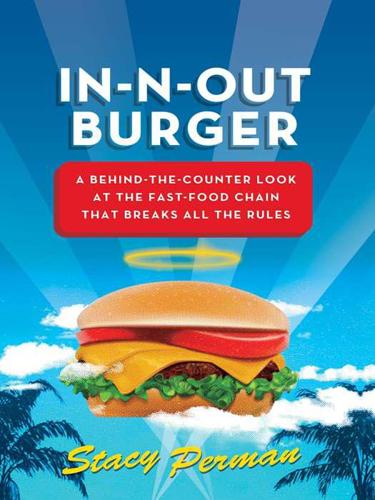
In-N-Out Burger
by
Stacy Perman
Published 11 May 2009
In the case of In-N-Out Burger, its managers maintained an average tenure of fourteen years, while its part-time associates remained, on average, two years. The result was a corporate culture operating in stark contrast to the competition’s systems of burger flippers and vat fryers, floor moppers and cashiers who put on their paper hats and grease-stained aprons in what society calls McJobs and economists refer to as the requisite churn of capitalism. It was a place where people genuinely enjoyed getting up in the morning and going to work. Rich explained it this way: “We try and maintain the highest quality level possible, and to do that you need good training and good people. That’s why we pay the highest wages in the industry.”
…
America Eats Out: An Illustrated History of Restaurants, Taverns, Coffee Shops, Speakeasies, and Other Establishments that Have Fed Us for 350 Years. New York: Morrow, 1991. Moon, Youngme, et al. “In-N-Out Burger,” Case Study 9–503–096. Harvard Business Review, June 30, 2003. Newman, Jerry. My Secret Life on the McJob: Lessons from Behind the Counter Guaranteed to Supersize Any Management Style. New York: McGraw-Hill, 2007. Pinheiro, Aileen, comp. The Heritage of Baldwin Park, 2 vols. Dallas, Tex.: Taylor Publishing Co., 1981; Covina, Ca.: Nielson Press Inc., 1999. Roderick, Kevin. The San Fernando Valley: America’s Suburb.
…
See drag racing Hot Rod magazine, 77 hot rods, Guy and Rich’s love of, 50, 122 Howard, Margaret, memories of In-N-Out, 43 How to Win Friends and Influence People, 81 Hungerford, Analisa, memories of Johnie’s Broiler, 50-51 Igloo Drive-In, 40 implosion, small companies and, 285–86 In & Go, 253–54 Initial Public Offering (IPO), 245, 285 denying rumor of, 128–29, 189 for fast-food giants, 99 wish list, 7 In-N-Out Burger All Stars and, 4 corporate culture v. McJobs, 140 cost-effectiveness and high volume, 47 as cultural institution, 13–14 fortieth anniversary, 165, 166 mystique of, 92, 146–48, 168–69, 287 In-N-Out Burger Foundation, 205 In-N-Out Burger logo, 2, 13, 121, 288 as advertising, 149 on store in Westwood, 224–25 In-N-Out Burger University, 133–36, 172 In-N-Out Urge, 150 innovation, 40–42 double drive-through, 62–63 open kitchen, 45 Insta-Burger-King.
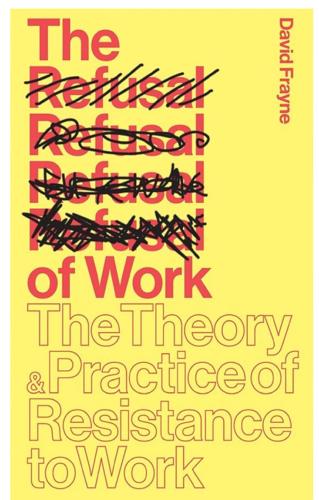
The Refusal of Work: The Theory and Practice of Resistance to Work
by
David Frayne
Published 15 Nov 2015
The characters that populate their books and songs bear a strong family resemblance to Generation X – a term popularised by Douglas Coupland in the 1990s, in his novel of the same name (Coupland, 1991). Generation X depicted a group of young adults who were grappling with their disillusionment around the trappings of the yuppie lifestyle. Coupland’s novel was witty, fiercely critical, and even featured a glossary of new phrases for the Gen-Xer’s arsenal: terms like McJob (a ‘low-pay, low- prestige, low-dignity, low-benefit, no-future job in the service sector’), Veal-Fattening Pen (‘small cramped office workstations built of fabric covered disassemblable wall partitions and inhabited by junior staff members’) and Rebellion Postponement (‘the tendency in one’s youth to avoid traditionally youthful activities and artistic experiences in order to obtain serious career experience.
…
K., 93 GDP, critiqued as indicator of progress, 3, 223 Generation X, 114 Genesis, Book of, 23 Gerald, a former academic, 151, 177, 178, 180, 193–4 Germany, 35-hour week in, 224 gestural type of rebellion, 214 Goffman, Erving, 192, 200, 204, 212 Goodman, Eleanor, 157 Google, offices of, 59 Gorz, André, 2, 19–20, 35–41, 43, 61, 62, 67, 74, 82, 90–1, 92, 115–16, 149–50, 151, 178, 179, 184–5, 217, 220–1 Gothenburg (Sweden), shorter working day in, 224 graduates, disillusionment of, 146 Graeber, David, 40 Granter, Edward, 112 gratifying work see satisfying work gratitude, culture of, 232 Greece: ancient, work regarded as curse, 23–4; sea turtle rescue project, 181 Green Party (UK): Basic Income policy, 226; policy on reducing working hours, 224 Gregg, Melissa, 72, 218 growth, economic, 43, 44, 236; critique of, 3–4, 6 Guinness beer, marketing of, 87 H Haiven, Max, 231 Hank, a brothel client, 55 ‘hardworking people’, reference to, 99 Harmony, a utopian society, 31 having, mode of being, 79, 166 Hayden, Anders, 39 Health and Safety Executive (UK), 148 hedonism, alternative, 116, 162–3, 168, 187 ‘Hephaestus’ company, 56–7 high-commitment work cultures, 57 hobbies, use of term, 70 Hochschild, Arlie, 52, 137; The Managed Heart, 53–4; The Outsourced Self, 67 Hodgkinson, Tom, How To Be Idle, 206 holidays, entitlement to, 139 homes, atmosphere of, 184–5 Honneth, Axel, 193 honour, 193 Horkheimer, Max, 81 humanisation of working day, 61 Humphery, Kim, 90 Hunnicutt, Benjamin, Work Without End, 82–5, 96–7 hygiene, Gorz’s definition of, 149–50 I identification with job roles, 62 identity, linked to work, 14–15, 27 idleness, morally objectionable, 83 idler: synonyms for, 189; use of term, 120 Idlers’ Alliance, 118–19, 122, 206, 207, 234 idling, concept of, 234 Illich, Ivan, 185–6 illness, 148, 196–7; has a meaning, 149; medical diagnosis of, 197; mental, 152; need for justification of, 202; non-suppression of, 150–1; repoliticisation of, 229 imagination, defending the importance of, 235–7 immaterial labour, 56 immaturity, perceived, 197–8 ‘in between jobs’, 202 inclusion, social, 161 income: alternative sources of, 161; management of, 121; to be decoupled from work, 112 indifference in work, 47–52 inner critic, 203 insecurity, 73–4 interiority, loss of, 81 International Labour Organisation (ILO), 42, 68 internships, unpaid, 81 interviews: limitations of, 121; methodology of, 118–19 intimacy of work, 52–61 Italian Autonomist movement, 1–2 J Jack, a former librarian, 122–4, 170 Jackson, Tim, 43 Jahoda, Marie, 106, 137 James, Selma, 115 Jarrett, Joanna, 199 job application forms, 76 job centres, 201 job competition, globalisation of, 42 job creation, 6 job insecurity, 6 joblessness, voluntary, in USA, 124–5 Jobseeker’s Allowance, 104, 134, 136 July, Miranda, 189 junk commodities, accumulation of, 170 K Kelley, Robin, 115 Kelvin, Peter, 199 Kerouac, Jack, 206 Kerr, Walter, The Decline of Pleasure, 173 Kettering, Charles, 85 Keynes, John Maynard, 33–5, 68, 82, 84; ‘Economic Possibilities for Our Grandchildren’, 33 Khasnabish, Alex, 231 knowledge economy, 49, 61 L labour exchanges, regulate casual labouring, 28 labour habits, new, formation of, 29 labour market, pressure of, 80 Labour Party (UK), 5 ‘labourers without labour’, 39, 41 Lafargue, Paul, The Right To Be Lazy, 21 laptops, 72 Larry, a former social worker, 120, 131–4, 137, 175 Lazarsfeld, Paul, 204 laziness, alleged culture of, 100 Learning to Love You More project, 189 Lefkowitz, Bernard, 124–5 Lego Movie, The, 71–2 leisure: as privilege for all, 95; fear of, 111; promotes consumption, 84 leisure time, shortage of, 68 less work see working less Levitas, Ruth, 235 Lewis, Justin, 85 life plans, 210 Linder, Staffan, 173–4, 177 living in a community, 144 living with intention, 128 living with less, as empowerment, 180 living without work, 21–3, 117, 119, 141 Lodziak, Conrad, 89 looking after pets, 195 ‘looking over one’s shoulder’, 76 loss of income, personal consequences of, 109 low-wage work, 6 lowering levels of spending, 171 Lucy, a former bargain shop worker, 127, 134–8, 151, 153, 159, 167, 174–5, 177, 183, 186, 194, 195, 198, 205–6 Lynx deodorant, marketing of, 87 M Marcuse, Herbert, 8, 35; Eros and Civilisation, 34; One-Dimensional Man, 26 Marienthal, sociological research into, 106–8, 110 Markland, George L., 97 Marx, Karl, 26, 30, 46, 85, 106, 116, 125, 142, 143, 147, 148; Capital, 32, 47, 114; Economic and Philosophical Manuscripts of 1844, 47–8; views on technology, 32, 33; views on work, 17–18, 32 material objects, connection to, 183 material wealth, desire for, 27 Matthew, a former office worker, 13, 58, 134–8, 141, 142–4, 146–7, 159, 169, 174, 177, 183, 186, 194, 201, 202, 205–6 maturity, definition of, 198 McDonald’s, 167, 213 ‘McJobs’, 114 McKenna, S., 109 McShit T-shirt, 213 Mead, George Herbert, 203 mealtimes see eating together meaningfulness in work, 63 meaningless work, 12–13, 22, 40 medication, rejection of, 150–1 Merton, Robert, 146 Mike, an interviewee, 124, 130, 165 Mills, C. Wright, 206; White Collar, 52 mindlessness of work, 163 mini utopia, 142–7 minimum-wage jobs, 135 mobile phones, 72, 168, 170 Moir, Jan, 101–2 monasteries, 25 monotony, of everyday life, 210–11 moral principles, alternative, 122 moralisation of work, 16, 25, 103, 105, 191 morality: of work, 26; of non-workers, 207, 234 More, Thomas, 30; Utopia, 31–2 Morris, William, 30, 31, 32 multi-activity society, 143, 220, 222 music, popular, decline of, 173–4 mystery customers, 54 N National Insurance Act (1911), 28 necessary labour, distribution of, 95 need to work, 14, 111 needs: fulfilled by work, questioning of, 64; growth of, 91 ‘neo-proletariat’, 115–16 neoliberalism, 73, 219; moral fortification of work, 16 New Economics Foundation, 99, 116, 223 New Labour, 16, 103 non-compliance, acts of, 212 non-violent action, practice of, 1–23 non-work: as extension of work, 75, 82; experience of, 112; stigmatisation of, 197 see also shame, of non-work non-workers: audits and penalties for, 16; demonisation of, 97, 98–105; viewed with sense of pity, 201 see also stigmatisation, of non-workers not doing anything really, 194 O Offe, Claus, 16 Office, The, 212 Olin Wright, Erik, 30, 223 O’Mahoney, Hannah, 181 Operation Zissou, 144 Osborne, George, 99 outsourcing of domestic work, 67, 184–5 P Packard, Vance, The Hidden Persuaders, 85–6 paid employment: as sign of maturity and independence, 186; as symbol of adulthood, 198; established as norm, 191; fulfils psychological needs, 107; promotion of, 105; viewed as fundamental human need, 96–7; viewed as healthy state of being, 98, 106, 108, 109 panopticon, electronic, 60 part-time working, 123 payment, tied to working hours, 28 people with disabilities, 16, 104 personal costs of intensive work, 58 Petri, Elio, La classe operaia va in paradiso, 1, 164–5 philosophy, talking about, 143 piano tuning, as artistic exercise, 12 Pilhelm, Mats, 224 Pirsig, Robert M., Zen and the Art of Motorcycle Maintenance, 183 play, in work, 75 pleasures: alternative, 157–88; productive, 177–88; savoured, 172–7; troubled, 164–72 pointlessness in work, 129 political discussion on work, initiation of, 237 politics, against work, 8 polyvalent workers, 142 poor, the: new, 159–60; seen as unworthy of leisure, 96 poor-quality jobs, effects of, 108 post-industrial economy, 49–50 potentiality, endless, sense of, 77 poverty, 159; culturalisation of, 100; self-management of, 205; viewed as deserved result, 100 see also poor, the prefigurative politics, 208 presents, buying of, 186–7 Primark, 167 productive forces, development of, 36 productivity, 36, 39; defines status of persons, 191; growth of, 40, 84, 94; obsession with, 195 professionalism, expected of employees, 58 professions, age of, 186 profit, 44, 63 prostitution, 55–6; emotional, 55 Protestant ethic, 24–9 pro-work propaganda, 96 public amenities, withdrawal of, 92 public sector workers, strike action by, 102 Pullberg, Stanley, 130, 144 Puritanism, 27 Q quality of life, 108 R Rachel, a human resources officer, 127, 130, 171 reading see books, reading of ‘Rebellion Postponement’, 114 recuperation of workers, 69–70, 147 reduction of work, 28, 32, 66, 84, 93, 94; a source of uneasiness, 97 redundancy, as cause of distress, 109–10 refrains, 211–12, 214 refusal of work, 8 reification, concept of, 125 see also de-reification Reilly, Cait, 101–3 rent, 101 repairing things, 182, 228 resistance: battle over language of, 232; culture of, 209 resistance to work, 5, 7, 13, 29, 55, 97, 112–17, 118, 156, 210, 215, 216, 217; a matter of imagination and will, 158, 159; as collective project, 217; as self-preservation, 154; material limits to, 159; motives for, 122; necessity of, 147; obstacles to, 10; potentiality of, 227; risks of, 159; routes into, 131 ‘resources’, term used for people, 139 restlessness, experiences of, 175 Rhys, husband of Ffion, 177–8, 181, 183, 209 right to be lazy, 21, 23 rituals of society, commercialised, 186 role, use of term, 65 role-distancing, 212 routine work, 18 rubbish jobs, 131–42 Russell, Bertrand, 75, 78–9, 80, 111, 225; ‘In Praise of Idleness’, 11, 95–6 Ryle, Martin, 113 S Salecl, Renata, 65, 169 Samantha, a former attorney turned waitress, 120, 138–41, 161, 177, 187, 197–8, 199 sanctity of paid work, 16, 63, 65, 96, 233 Sarkozy, Nicolas, 3–4 satisfaction at second remove, 185 satisfying work, 5, 12, 30, 132 scarcity, problem of, 33 Schor, Juliet, 165 scroungers, 199, 202 self-care, 149, 150, 151 self-defined activities, 70 self-improvement, 219 self-production, 91, 92, 228; enjoyment of, 181-4 self-reliance, 182 sellable self, 77 Sennett, Richard, 51, 73 sense of self of workers, compromised, 54 service industries, 40, 50 Severe and Enduring Mental Health Problems, label, 152 sexuality, enjoyment of, 175–6 shame: as main tool of advertising, 171; associated with resistance to work, 10; of non-workers, 192, 202 Shipman, Tim, 102 shirkers, stereotype of, 154 see also skivers shopping: a troubled pleasure, 167; avoidance of, 170; compulsive, 171; mental calculations involved in, 165; patriotic, 89; pleasure of, short-lived, 170 sickness see illness simplification of life, 218 singing, 118 single parents, 16, 104, 108 skivers, 99, 101, 189 slavery, 24 sleep, 148; needed by workers, 147 slow food movement, 118, 176 smiling, 118 sociability, 137 social protection, 74 social work, as bureaucratic machine, 132 socialisation, 15, 126, 129 sociality of workers, capture of, 60 sociological imagination, 206 Soper, Kate, 89, 113, 116, 162–3, 168, 176, 187 Southwood, Ivor, 45, 104 spending, reduction of, 179 Spicer, André, 212–13 Stallings, Phil, 45–6 standardisation of labour processes, 133 stigma: definition of, 192; insulating oneself against, 216 stigmatisation, 203–4; of non-workers, 9, 105, 121, 199 stress, 131, 148, 236; coping with, 218 ‘strivers versus skivers’, 99, 101 Sturdy, Andrew, 59–61, 64 subordination, in work relations, 91 Sunray company, 59–60 supermarket, visits to, 167–8 surplus-labour, 147 surveillance cameras, 54 sweatshops, exploitation in, 61 Sweden, shorter working day in, 224 symptoms, 148 T taxation, corporate evasion of, 101 Taylor, Frederick, 48 Taylor, Laurie, 126, 127, 129, 210 Taylorism, 48, 61; emotional, 54 team, idea of, at work, 56–7, 58 technology, 33 see also Marx, views on technology television, 87; viewers, alleged suggestibility of, 86 Terkel, Studs, 13, 15; Working, 11–12, 45 Tesco, commodity varieties in, 169 Thatcher, Margaret, 181 Theroux, Louis, 55 thirty-five hour week, 68, 223–4 Thompson, E.

Bit Rot
by
Douglas Coupland
Published 4 Oct 2016
Europeans visiting Canada or the States: remember that restaurant memories are a great conversation starter; almost everyone you encounter will have tales of psychotic bosses, Christmas morning shifts and après-work partying excesses. Working in a restaurant when you’re young doesn’t necessarily mean minimum wage (though it usually does). For many people, minimum wage is a stage-of-life thing that we all work through and gaze back on with rose-tinted glasses. When I put the word McJob in my 1991 novel Generation X, I wanted a word to describe a “low-paying, low-prestige dead-end job that requires few skills and offers very little chance of intracompany advancement.” It made sense then and it makes sense now. Back in the early 1990s, I began to see the start of a process that’s currently in full swing: the defunding or elimination of the mechanisms by which we once created and maintained a healthy middle class.
…
The point in doing so was to foreground the fact that a minimum-wage job is simply not a way to live life fully, and to be earning such a wage past a certain age casts a spell of doom upon your days, sort of like those middle-class Argentineans who lost their jobs in the crash fifteen years ago and never went back to being middle-class again. McDonald’s campaigned for years and ultimately failed to get the word McJob struck from the Oxford English Dictionary, even renting a big screen in Piccadilly Circus in 2006 to put forth their viewpoint. The saga of this campaign is a fun read on Wikipedia, but given the accelerating shrinkage of the middle class, the McLawsuit seems like a frivolous corporate bonbon from a nearly vanished era.

Tough Sh*t: Life Advice From a Fat, Lazy Slob Who Did Good
by
Kevin Smith
Published 20 Mar 2012
I entered the dream factory in 1994, and by Jay and Silent Bob Strike Back in 2001, I was making movies about making movies. I was eating my own tail. There’s a lot of tail-eating going on in Zack and Miri Make a Porno, since it’s really just the story of how we made Clerks, projected through a wet-dream prism, with Scott Mosier conveniently recast as a girl I fuck on camera in the back room of a McJob and fall in love with by the final reel. I tried to capitalize on someone else’s success and forgot what got me invited to the party in the first place: the fact that my shit used to be different. Suddenly, I felt dirty, realizing I’d gone into career-management mode, just treading water, not saying anything new.
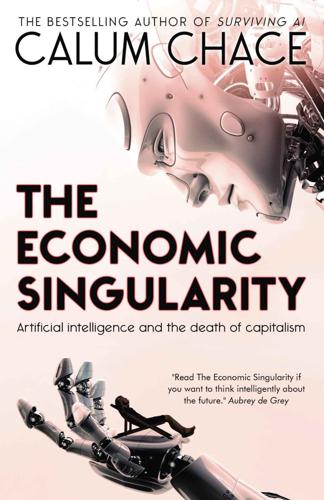
The Economic Singularity: Artificial Intelligence and the Death of Capitalism
by
Calum Chace
Published 17 Jul 2016
The shift towards purchasing goods and services online continues, and there is growing automation within shops. In some supermarkets, shoppers no longer have to unload and re-load their trolleys: the goods are scanned while still inside their baskets. Fewer attendants are required in the checkout area. In fast food outlets, so-called “McJobs” are disappearing as burgers and sandwiches are assembled and presented to customers without being handled by a human. 5. Construction. Although some developers are experimenting with pre-fabricated units, most of the cost of a construction project is generated by the variability of conditions on-site, including the foundations.
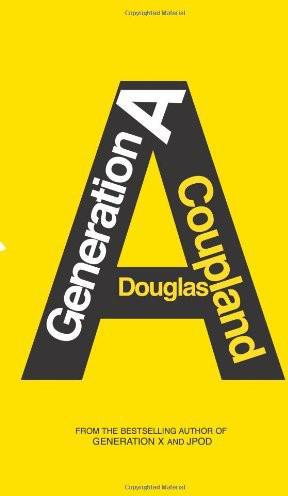
Generation A
by
Douglas Coupland
Published 2 Jan 2009
This allowed him to isolate and separate specific proteins within. It was a job that needed much skill and decades of education but was about as fun as stocking cardboard boxes at a Body Shop. The scientist wondered if his entire youth had been wasted in attaining what was essentially an ultra-high-tech McJob. And, to go back to what was stated earlier, he was worried that his girlfriend was cheating on him simply because she could, and because her take-him-or-leave-him attitude kept his own brain’s neuroproteins on constant nuclear alert. “Wait,” Zack said. “You’re talking about yourself here, right?”
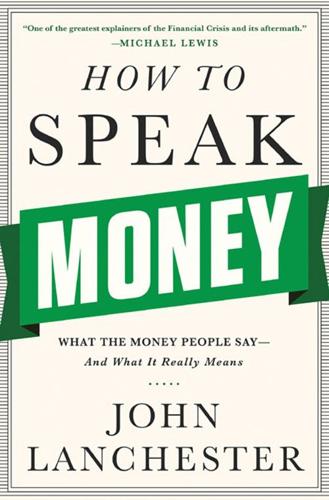
How to Speak Money: What the Money People Say--And What It Really Means
by
John Lanchester
Published 5 Oct 2014
Switzerland 10. Japan 11. Canada 12. South Korea The bottom ten, counting down to number 168, are all in sub-Saharan Africa: 159. Burundi 160. Guinea 161. Central African Republic 162. Eritrea 163. Mali 164. Burkina Faso 165. Chad 166. Mozambique 167. Democratic Republic of Congo 168. Niger McJobs Low-pay, low-status, low-security, low-prospects jobs of the sort done by workers in McDonald’s—hence the name. mean and median The mean is the average: for any group, you add whatever it is you’re measuring together, divide it by the number of people in the group, and that’s the mean. The median is the person in the middle, with 50 percent above and 50 percent below.
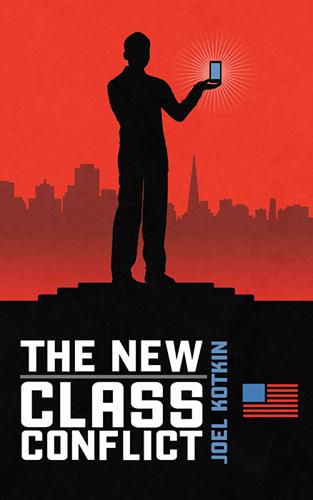
The New Class Conflict
by
Joel Kotkin
Published 31 Aug 2014
Almost one in three young people (between ages 18 and 34) has put off getting married or having a baby because of the weak economy and wages that have been dropping even for college graduates. Perhaps more worrisome still, some, such as Aaron Renn, suggest that many millennials avoid work that they consider “McJobs” and may remain outside the labor force for a prolonged period. Rather than work in a fast food restaurant, many prefer simply to stay unattached to the labor force. By 2013, the labor participation rate among workers 16 to 19 had dropped to 35 percent from over 50 percent in 2000; those aged 20 to 24 saw their rate drop from 80 to 70 percent at the same time.5 What the new generation faces, at least in the immediate future, is not greatness, or even great relevance.

The Weightless World: Strategies for Managing the Digital Economy
by
Diane Coyle
Published 29 Oct 1998
The vast majority of the new jobs were full time, it said. And, taking aim at that joke, the report said the share of workers holding multiple jobs had remained roughly constant. Joseph Stiglitz, the economist then in charge of the CEA, drew two conclusions. One, that it was a myth that most of the new jobs the economy was creating were so-called ‘McJobs’ — that is, typical of hamburger-flipping jobs in security, conditions and pay. Two, that the government needs to equip people with ‘security of employability’ rather than security of employment. In other words, they needed the kind of education, training and attitudes that would allow them to find other work quickly if unemployment befell.
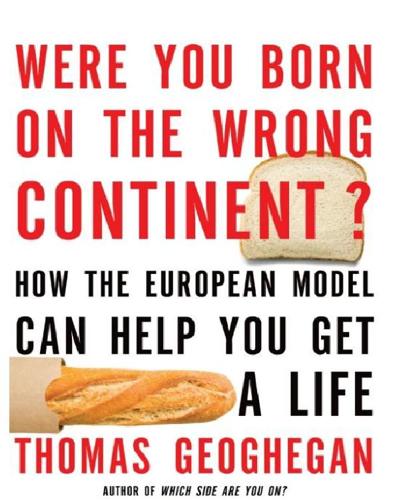
Were You Born on the Wrong Continent?
by
Thomas Geoghegan
Published 20 Sep 2011
So why did people move from the hunter/nomad model to the farmer? Simple: the farmer model could sustain a larger population, though at a lower standard of living. Unlike the hunter/nomad model, which produced high-skilled “hunter” jobs but not enough of them, the agrarian model produced a lot of low-skilled jobs, jobs, jobs, or what some would now call “McJobs.” In a sense, while the higher-skilled hunter model led to a better way of life, the farmer model was better at—well, giving people work to do but not with very high rewards. That seemed to echo the U.S./Europe debate. The European model, like the hunter model, may produce better types of jobs, but the U.S. model, like the farmer model, could produce far more jobs.
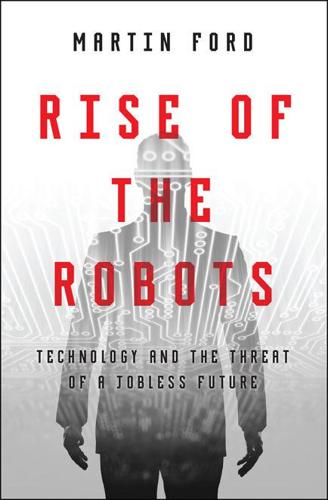
Rise of the Robots: Technology and the Threat of a Jobless Future
by
Martin Ford
Published 4 May 2015
In December 2013, the US Bureau of Labor Statistics ranked “combined food preparation and serving workers,” a category that excludes waiters and waitresses in full-service restaurants, as one of the top employment sectors in terms of the number of job openings projected over the course of the decade leading up to 2022—with nearly half a million new jobs and another million openings to replace workers who leave the industry.16 In the wake of the Great Recession, however, the rules that used to apply to fast food employment are changing rapidly. In 2011, McDonald’s launched a high-profile initiative to hire 50,000 new workers in a single day and received over a million applications—a ratio that made landing a McJob more of a statistical long shot than getting accepted at Harvard. While fast food employment was once dominated by young people looking for a part-time income while in school, the industry now employs far more mature workers who rely on the jobs as their primary income. Nearly 90 percent of fast food workers are twenty or older, and the average age is thirty-five.17 Many of these older workers have to support families—a nearly impossible task at a median wage of just $8.69 per hour.

Chasing the Scream: The First and Last Days of the War on Drugs
by
Johann Hari
Published 20 Jan 2015
Bruce realizes that in all his months and years interviewing addicts about their lives, they had been telling him the answer all along. “People explained over and over before I got it,” Bruce tells me. Before they became junkies, these young people were sitting in a room alone, cut off from meaning. Most of them could hope at best for a McJob with a shrinking minimum wage—a lifelong burger-flip punctuated by watching TV and scrimping for minor consumer objects. “My job was basically to say—why don’t you stop taking drugs?” Bruce says. “And one guy explained to me very beautifully. He said, ‘Well, think about that for a minute. What would I do if I stopped taking drugs?

Make Your Own Job: How the Entrepreneurial Work Ethic Exhausted America
by
Erik Baker
Published 13 Jan 2025
On the pervasive gendering of microcredit programs see Meyerowitz, A War on Global Poverty, especially chapter 5. 51Michael Porter, “The Rise of the Urban Entrepreneur,” Inc., May 16, 1995, 104. See also Michael Porter, “The Competitive Advantage of the Inner City,” Harvard Business Review (May–June 1995): 55–74. 52Initiative for a Competitive Inner City, “Overview of the Initiative for a Competitive Inner City,” in Boston and Ross, Inner City, quote at 227. 53Ben Wildavsky, “McJobs: Inside America’s Largest Youth Training Program,” Policy Review 49 (1989): 30–37, at 34; Leon E. Wynter, “Fast Track: How Two Black Franchisees Owe Success to McDonald’s,” Wall Street Journal, July 25, 1989, B1; Udayan Gupta, “Franchising Fever,” Black Enterprise 15, no. 7 (1985), 112. See also Marcia Chatelain, Franchise: The Golden Arches in Black America (New York: Liveright, 2020). 54Timothy Bates, “Political Economy of Urban Poverty in the 21st Century: How Progress and Public Policy Generate Rising Poverty,” in Boston and Ross, Inner City, quote at 220. 55Mayssoun Sukarieh and Stuart Tannock, “Putting School Commercialism in Context: A Global History of Junior Achievement Worldwide,” Journal of Education Policy 24, no. 6 (2009): 769–786, esp. 775. 56Jim Estrin, “Problem Youths Learn How to Succeed in Business,” New York Times, March 13, 1988, 46; Susan Herendeen, “New Program Gives Students the Business,” Washington Post, February 24, 1994, DC1; Linda Colvin Rhodes, “The Entrepreneurial Class,” Wall Street Journal, July 14, 1997, A14. 57Rhodes, “Entrepreneurial Class”; H.R.1 No Child Left Behind Act of 2001 (107th Congress), Section 1423, https://www.congress.gov/bill/107th-congress/house-bill/1/text. 58De Soto, Mystery of Capital, 70. 59Charles Murray, Losing Ground: American Social Policy, 1950–1980 (New York: Basic Books, 1984); Robert L.
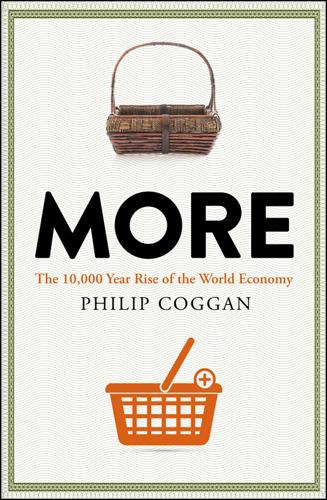
More: The 10,000-Year Rise of the World Economy
by
Philip Coggan
Published 6 Feb 2020
Employees with flexible roles are organised in teams, and each worker is encouraged to stop production when a fault is discovered. The result is that workers are happier, quality is improved, and the management gains from the workers’ insights. 25 But lean manufacturing has not stopped the decline in industrial employment. The worry is that well-paid factory work has been replaced with “McJobs” (after the McDonalds burger chain) in the services sector, with lower pay and poorer conditions. In turn, this may have contributed to the rise of inequality in the developed world. But one study has concluded that “on average, only about one-tenth of the overall increase in inequality between the 1980s and the 2000s can be attributed to the decline in the share of manufacturing jobs”.26 More than half of all global workers now have a job in services, up from just 33.7% in 1991.27 People who work in offices or shops have jobs that are just as “real” as those who work in factories.
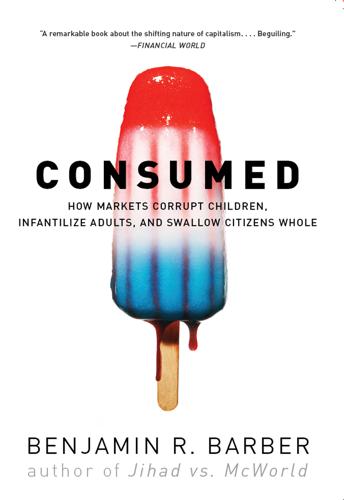
Consumed: How Markets Corrupt Children, Infantilize Adults, and Swallow Citizens Whole
by
Benjamin R. Barber
Published 1 Jan 2007
.: The Corporate Corruption of American Higher Education (New York: Basic Books, 2005), whose cover is decorated with a mortar board affixed with a “sold” label; Derek Bok, Universities in the Marketplace: The Commercialization of Higher Education (Princeton, N.J.: Princeton University Press, 2003); and Stanley Aronowitz, The Knowledge Factory: Dismantling the Corporate University and Creating True Higher Learning (Boston: Beacon Press, 2000). Aronowitz worries that universities have become education factories for vocational training and McJobs rather than places of critical learning. 53. Andrew Hacker, “The Truth About the Colleges,” New York Review of Books, November 3, 3005. If evidence for the corporatization of the university is needed, Hacker observes that “employees who are not teachers make up 71 percent of Stanford’s total payroll…and 83 percent at Harvard.” 54.
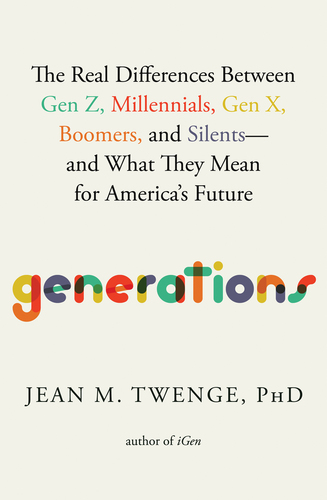
Generations: The Real Differences Between Gen Z, Millennials, Gen X, Boomers, and Silents—and What They Mean for America's Future
by
Jean M. Twenge
Published 25 Apr 2023
Room to Move as a Fry Cook—or a Tech Millionaire Traits: Good Incomes Despite the Slacker Image Crime was not the only problem Gen X’ers faced in the early 1990s: Gen X’ers regularly lamented that they got the short end of the economic stick compared to Boomers. The early 1990s were full of dire predictions about how Gen X’ers would never amount to anything and would never do as well as their parents. Generation X (1991) coined the term McJob (“a low-pay, low-prestige, low-dignity, low-benefit, no-future job in the service sector”) and generally gave the impression Gen X’ers weren’t living up to their potential (an idea egged on by movies like Slacker). Gen X authors like Geoffrey Holtz (b. 1966) marshaled statistics and charts to show Gen X’s piss-poor economic state; his 1995 book, Welcome to the Jungle, featured a section titled “The Impoverished Generation.”